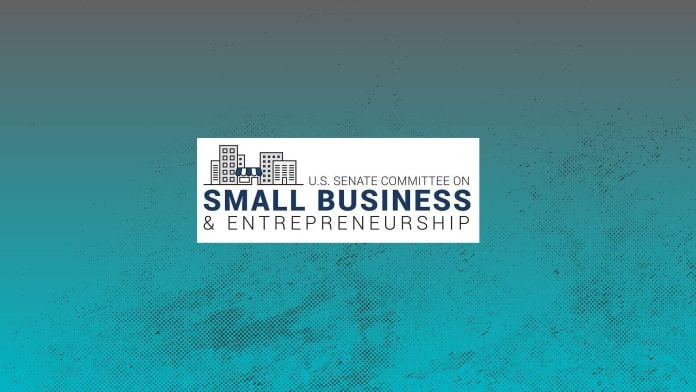In a notable effort to strengthen America’s innovation landscape, U.S. Senate Committee on Small Business and Entrepreneurship Chair Joni Ernst (R-Iowa) recently met with local business leaders in Iowa City to discuss the implications of her newly proposed INNOVATE Act. This legislation aims to reform the Small Business Innovation Research (SBIR) and Small Business Technology Transfer (STTR) programs, seeking to unlock substantial technology advancements and fuel a productive ecosystem for small businesses.
Ernst’s initiative comes at a crucial time for the nation’s small business sector. During her River to River tour, she emphasized the need for policies that empower truly small businesses and startups to enhance competitiveness in a rapidly evolving market. “This act will expand opportunities in the heartland,” she stated, highlighting her commitment to ensuring that small enterprises can seize the potential for growth and innovation.
The SBIR and STTR programs have long been critical funding sources for startups developing new technologies, yet they often face bureaucratic hurdles and logistical challenges. By simplifying processes and refining their objectives, the INNOVATE Act could dramatically enhance how small businesses access vital resources. “The reauthorization of these vital programs produces an outsized return on investment within the economy. It provides crucial capital to these early-stage companies,” noted Jessica Hyland, Executive Director of the Iowa Biotechnology Association. She stressed that the funding fosters job creation while driving the development of breakthrough innovations in areas like healthcare, agriculture, and renewable energy.
The endorsement of this act extends beyond Iowa, garnering national attention and acclaim. Billi Hunt, Executive Director of America’s Cultivation Corridor, echoed Hyland’s insights, stating, "It was an important opportunity to hear directly from innovators about the value programs like SBIR bring to our innovation ecosystem." The emphasis on aligning SBIR’s mission with tangible business outcomes can enable states like Iowa, with distinctive strengths in agriculture and advanced manufacturing, to lead in commercializing innovations.
There are practical implications for small business owners considering engagement with these programs. The INNOVATE Act is designed to ensure that funding and opportunities are directed towards businesses with the potential for innovative impacts. Will Dickson, Chief Commercial Officer of Canopy Aerospace, articulated the significance of this legislative action: “Small businesses move more quickly and take more risks than established businesses; harnessing this capability is critical to maintaining U.S. global technological competitiveness.” For small businesses, this translates to being better positioned for funding that prioritizes results over traditional research metrics.
However, challenges remain in navigating these programs effectively. Many small business owners may still face a learning curve in accessing these resources, and the reforms must ensure that the benefits reach those who need them most. Understanding the legislative landscape, acquiring necessary expertise, and aligning business objectives with the goals of the SBIR and STTR programs could pose initial hurdles for some business leaders.
The INNOVATE Act has already received positive feedback from diverse sectors. Ben Nicholson, Chief Business Officer of Ursa Major, emphasized that the legislation reflects a crucial focus on providing resources for small businesses contributing to national security. “It represents a committed Congressional focus to streamlining investment in domestic innovation,” he remarked. This illustrates a broader acceptance of the act’s mission across various industries, suggesting a unifying call for enhanced support for U.S.-based technological development.
Caleb Carr, President and CEO of Vita Inclinata Technologies, shared personal testimony about the positive impact of the SBIR program on his venture. “Passing Sen. Ernst’s INNOVATE Act will create meaningful improvements to ‘America’s seed fund’ and ensure its viability for years to come,” he emphasized.
With integral support from business communities and stakeholders, the INNOVATE Act stands poised to redefine how small businesses engage with federal innovation programs. As small businesses look to secure their foothold in an increasingly competitive marketplace, this could be the legislative push necessary for defining a new age of innovation in America.
To discover more about Senator Ernst’s INNOVATE Act and its implications for small businesses, read the original press release here.
Image Via BizSugar



